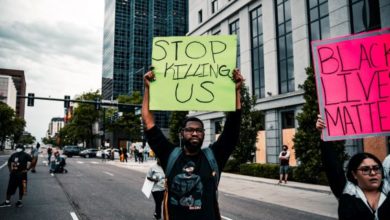American Civil Liberties Union of Florida, Miami Op-Ed: Florida ACLU Says Censorship of Reggae Artist Buju Banton is Wrong!
MIAMI – American Civil Liberties Union of Florida, Miami, Executive Director Howard Simon, and Robert Rosenwald, director, LGBT Advocacy Project speak out on the issue of the Gay Activists against Reggae singer, Buju Banton and his scheduled performance in South Florida for Reggae Bash 2009.
It is disheartening that some of our colleagues in the gay and lesbian equality movement have embraced censorship as a tactic to combat hate speech. In his Oct. 6 Other Views article, Songs of hate, George Byars calls on public officials to ban the Miami concert by Buju Banton and Beenie Man.
This is terribly short-sighted: Giving government the power to censor messages it thinks are dangerous never advances the cause of equality and freedom.
In Florida, we don’t need to speculate about the dangers of letting government decide when to ban supposedly inflammatory messages. Only last year, a high school principal banned rainbow stickers and other expressions of support for gay rights because he thought that they caused students to think about sex rather than schoolwork. (He was stopped as a result of an ACLU lawsuit.)
The ACLU opposes censorship in all its forms. More than a decade ago, we went to the U.S. Supreme Court to defend Luther Campbell and 2 Live Crew against obscenity charges threatened by then-Broward County Sheriff Nick Navarro.
We are now before that court challenging censorship of library books by the Miami-Dade County School Board.
Last year we successfully sued two school districts for banning Gay Straight Alliance Clubs that promote tolerance of diversity. We oppose censorship even when those advocating censorship are our friends.
The Buju Banton song in question is vile and offensive. But despite its hateful message, it is protected speech under the Constitution.
Its violent imagery isn’t new: From hardcore punk to rap, images of violence have been a central part of pop music. The hardcore punk band MDC (Millions of Dead Cops) has played concerts across the country and Europe for 30 years. One of its standards, Let’s Kill All the Cops, begins: “Let’s kill all the cops and throw ’em in bags / Set it on fire on a pile of rags.”
Since the early days of rap music, hip-hop stars have used vile and violent lyrics about killing cops, killing women, killing “whitey,” killing each other and, occasionally, killing gay men and lesbians.
Song lyrics are constitutionally protected free speech unless the words constitute a true threat or incitement to imminent violence.
Rhetorical hyperbole is not a true threat — even if, as the Supreme Court has ruled, it specifically names the president as its target. The Buju Banton lyrics in question do not name anybody.
As to the claim that the song lyrics are incitement, Banton has sung his song many times, including during a previous appearance in Miami, with no ensuing violence. There is no basis to make the leap from a hateful and offensive pop song to incitement to riot.
A song sung before an audience of fans is not a true threat, an incitement to riot or anything else that the Constitution permits the government to censor. It’s just a song that, inexplicably, some people find entertaining.
Combating hateful speech by suppressing it is a mistaken strategy. Fighting prejudice and hate requires more speech, “not enforced silence,” as Supreme Court Justice Louis Brandeis observed decades ago.
The First Amendment permits everyone to demonstrate against Buju Banton and Beenie Man, to condemn their message, to boycott the sponsors and, in hundreds of other ways, to engage in counter speech. But it does not permit anyone to harness the machinery of government to silence their ugly voices.

